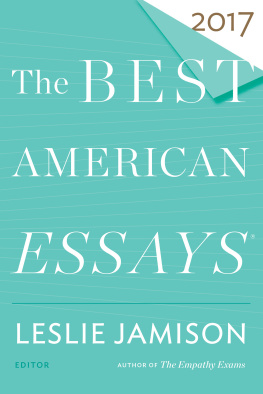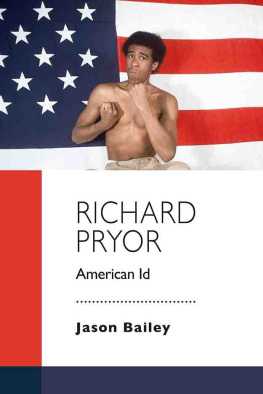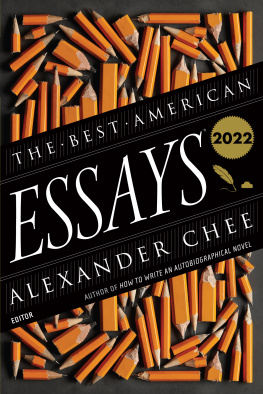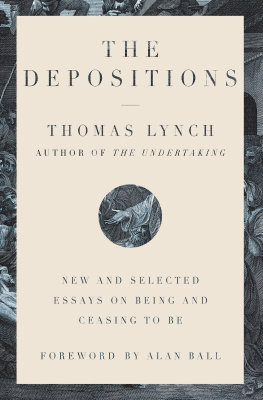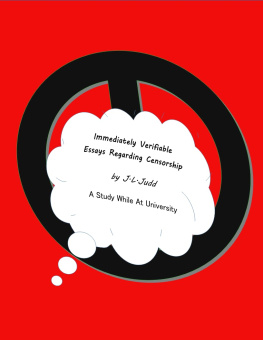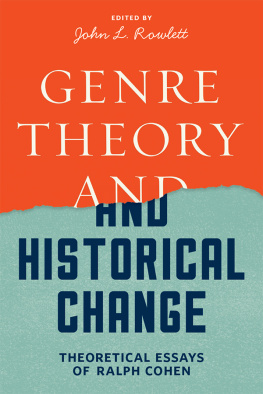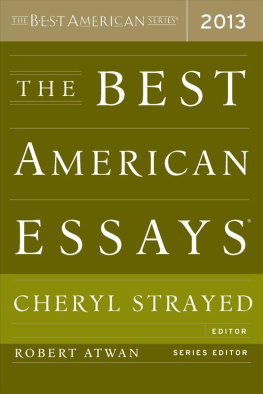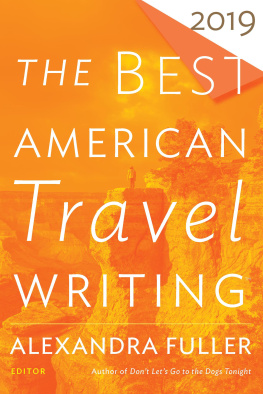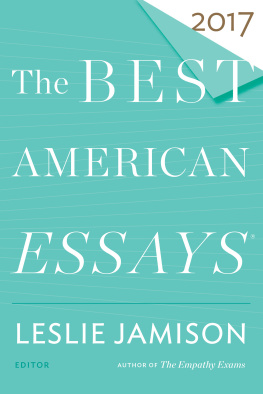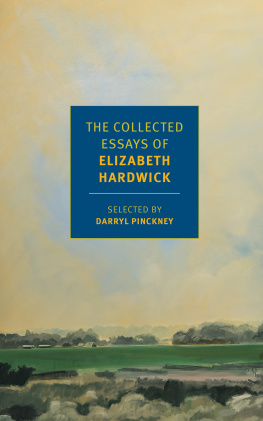Copyright 2017 by Houghton Mifflin Harcourt Publishing Company
Introduction copyright 2017 by Leslie Jamison
ALL RIGHTS RESERVED
The Best American Series is a registered trademark of Houghton Mifflin Harcourt Publishing Company. The Best American Essays is a trademark of Houghton Mifflin Harcourt Publishing Company.
No part of this work may be reproduced or transmitted in any form or by any means, electronic or mechanical, including photocopying and recording, or by any information storage or retrieval system without the proper written permission of the copyright owner unless such copying is expressly permitted by federal copyright law. With the exception of nonprofit transcription in Braille, Houghton Mifflin Harcourt is not authorized to grant permission for further uses of copyrighted selections reprinted in this book without the permission of their owners. Permission must be obtained from the individual copyright owners as identified herein. Address requests for permission to make copies of Houghton Mifflin Harcourt material to or to Permissions, Houghton Mifflin Harcourt Publishing Company, 3 Park Avenue, 19th Floor, New York, New York 10016.
www.hmhco.com
ISSN 0888-3742 (print) ISSN 2573-3885 (e-book)
ISBN 978-0-544-81733-3 (print) ISBN 978-0-544-81742-5 (e-book)
Jacket design by Christopher Moisan Houghton Mifflin Harcourt
v2.1017
Two Shallow Graves by Jason Arment. First published in the Florida Review, Summer 2016. Copyright 2016 by Jason Arment. Reprinted by permission of Jason Arment.
The Weight of James Arthur Baldwin by Rachel Kaadzi Ghansah. From The Fire This Time, edited by Jesmyn Ward. Copyright 2016 by Rachel Kaadzi Ghansah. First published in BuzzFeed, February 29, 2016. Reprinted with the permission of Scribner, a division of Simon & Schuster, Inc. All rights reserved.
White Horse by Eliese Colette Goldbach. First published in Alaska Quarterly Review, Spring/Summer 2016. Copyright 2016 by Eliese Colette Goldbach. Reprinted by permission of Eliese Colette Goldbach.
The City That Bleeds by Lawrence Jackson. First published in Harpers Magazine, July 2016. Copyright 2016 by Lawrence Jackson. Reprinted by permission of Lawrence Jackson.
We Are Orphans Here by Rachel Kushner. First published in the New York Times Magazine, December 4, 2016. Copyright 2016 by Rachel Kushner. Reprinted by permission of Writers House.
What Came Before the Big Bang? by Alan Lightman. First published in Harpers Magazine, January 2016. Copyright 2016 by Alan Lightman. Reprinted by permission of Alan Lightman and Harpers Magazine.
Cost of Living by Emily Maloney. First published in the Virginia Quarterly Review, Spring 2016. Copyright 2016 by Emily Maloney. Reprinted by permission of Emily Maloney.
If I Only Had a Leg by Greg Marshall. First published in Electric Literature, November 18, 2016. Copyright 2016 by Greg Marshall. Reprinted by permission of Greg Marshall.
Working the City by Bernard Farai Matambo. First published in Transition, no.121. Copyright 2016 by Bernard Farai Matambo. Reprinted by permission of Bernard Farai Matambo.
Sparrow Needy by Kenneth A. McClane. First published in Kenyon Review, January/February 2016. Copyright 2016 by Kenneth A. McClane. Reprinted by permission of Kenneth A. McClane.
The Book of the Dead by Catherine Venable Moore. First published in Oxford American, Fall 2016. Copyright 2016 by Catherine Venable Moore. Reprinted by permission of Catherine Venable Moore. Excerpts from The Book of the Dead by Muriel Rukeyser. Copyright 1938 by Muriel Rukeyser. Reprinted with permission from ICM Partners.
Last Taboo by Wesley Morris. From the New York Times Magazine, October 30, 2016. Copyright 2016 by the New York Times. All rights reserved. Used by permission and protected by the copyright laws of the United States. The printing, copying, redistribution, or retransmission of this Content without express written permission is prohibited.
Indigent Disposition by Christopher Notarnicola. First published in North American Review, Winter 2016. Copyright 2016 by Christopher Notarnicola. Reprinted by permission of Christopher Notarnicola.
Dispatch from Flyover Country by Meghan OGieblyn. First published in the Threepenny Review, Summer 2016. Copyright 2016 by Meghan OGieblyn. Reprinted by permission of Meghan OGieblyn.
The Reader Is the Protagonist by Karen Palmer. First published in the Virginia Quarterly Review, Spring 2016. Copyright 2016 by Karen Palmer. Reprinted by permission of Karen Palmer.
H. by Sarah Resnick. First published in n+1, Winter 2016 (no. 24). Copyright 2016 by Sarah Resnick. Reprinted by permission of Sarah Resnick.
Haywire by Heather Sellers. First published in Tin House, no. 69. Copyright 2016 by Heather Sellers. Used by permission of Brandt & Hochman Literary Agents, Inc. All rights reserved.
Travels in Pornland by Andrea Stuart. First published in Granta, no. 136. Copyright 2016 by Andrea Stuart. Reprinted by permission of Andrea Stuart.
Revenge of the Mouthbreathers: A Smokers Manifesto by June Thunderstorm. First published as Off Our Butts in the Baffler, no. 33. Copyright 2016 by June Thunderstorm. Reprinted by permission of June Thunderstorm.
Snakebit by Alia Volz. First published in the Threepenny Review, Spring 2016. Copyright 2016 by Alia Volz. Reprinted by permission of Alia Volz.
Foreword
The day I began this years foreword the news in my inbox reminded me that April 6, 2017, marked the one hundredth anniversary of Americas entry into World War I. The momentous decision to send U.S. troops came after years of hesitation and deliberation, and it was roundly applauded by those who thought an Allied victory (as Woodrow Wilson claimed) would make the world safe for democracy; H. G. Wells believed it would be the war that will end war. For the ill-prepared American conscripts, these noble ideals soon found themselves severely tested in the trenches of Flanders and Belleau Wood.
Although most Americans rallied behind the declaration, vigorous antiwar protests left many communities across the nation divided. One of the most interesting voices opposing U.S. entry into the war belonged to a young essayist who would die in the Great Influenza shortly after the Armistice, at the age of thirty-two. Randolph Bourne (18861918) remains one of the nations greatest advocates for peace, social justice, youth movements, labor, immigration, educational reform, and progressive values in general. The historian Christopher Lasch thought Bourne one of the earliest American writers to examine the intersections of culture and politics. Although his professional writing career covered barely eight years, Bournes literary output as an essayist was impressively prolific and often groundbreaking. In The Best American Essays of the Century, Joyce Carol Oates and I included Bournes The Handicapped, a moving account of his youthful struggles with two medical misfortunes: a grotesquely disfigured face caused by a very messy birth and severe physical disabilities resulting from the spinal tuberculosis he contracted at the age of four.
Back when the word activist was still a neologism, Bourne demonstrated what the term actually meant and would mean in the future. As an undergraduate at Columbia, Bourne confessed getting into trouble over some impassioned letters I wrote to the college daily protesting against the poor treatment of the scrub women, and the low ages of the children employed around the campus. Like other universities, he argued, Columbia does not hesitate to teach Social Ethics in the classroom and exploit its labor force on the side.
Next page
